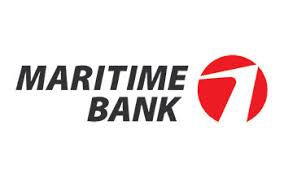The Regional Maritime Development Bank (RMDB) convened a strategic meeting in Abuja, Nigeria, with key stakeholders in the maritime and blue economy sectors. The meeting aimed to foster collaboration and align national efforts toward accelerating maritime sector growth and infrastructure development in West and Central Africa. The RMDB, determined to catalyze transformative change in the region’s maritime landscape, presented its comprehensive implementation strategy and priority areas, sparking robust discussions and valuable input from participants. This collaborative effort signals a significant step towards realizing the region’s maritime potential and establishing Nigeria as a leading maritime hub.
RMDB President and CEO, Adeniran Aderogba, outlined the bank’s strategic focus, encompassing several key areas crucial for maritime sector development. These include the development of a national shipping carrier to bolster Nigeria’s presence in international shipping and enhance its trade competitiveness. Cabotage vessel financing will empower indigenous operators and boost local participation in the maritime industry. Investing in shipbuilding and repair facilities within the region aims to reduce capital flight and foster local expertise. Modernizing and expanding port infrastructure is another priority, along with developing inland waterways transportation and integrating multimodal logistics to create a seamless and efficient transport network. These strategic interventions reflect the RMDB’s commitment to driving sustainable economic growth, creating job opportunities, and strengthening regional trade integration.
The RMDB’s implementation plan addresses critical gaps in maritime infrastructure and capacity building. Establishing a national shipping carrier represents a strategic move to solidify Nigeria’s position in global shipping, while financing cabotage vessels aims to empower local operators and foster indigenous participation in the maritime industry. Investing in shipbuilding and repair yards within the region is crucial for reducing capital flight and promoting local expertise. These initiatives signify not merely project financing but a broader vision of fostering maritime excellence, resilience, and regional integration. Collaboration with government agencies and private sector actors is paramount to realizing this ambitious mission.
The meeting brought together a diverse group of stakeholders, including representatives from various government ministries crucial to economic and maritime development, such as the Federal Ministry of Finance, the Ministry of Petroleum Resources, and the Federal Ministry of Marine and Blue Economy. Key maritime agencies like the Nigerian Maritime Administration and Safety Agency (NIMASA), the Nigerian Ports Authority (NPA), and the National Inland Waterways Authority (NIWA) also participated, along with representatives from the Nigerian National Petroleum Company Limited (NNPCL) and the Nigerian Content Development and Monitoring Board (NCDMB). This broad representation underscores the importance of inter-agency collaboration and a unified approach to achieving national maritime objectives.
Participants expressed strong support for the RMDB’s visionary plan, recognizing its potential to transform the maritime sector. They reaffirmed their commitment to collaborate with the bank and contribute to achieving shared national goals. The meeting identified key areas for synergistic action, including policy alignment, infrastructure investment, regulatory support, and improved access to finance for local maritime operators. These areas of collaboration will be crucial in creating a conducive environment for maritime sector growth and ensuring the successful implementation of the RMDB’s strategic initiatives.
The establishment of an inter-ministerial committee to provide immediate policy support for project implementation further solidifies the commitment to collaborative action. This committee will play a vital role in streamlining policy frameworks and ensuring regulatory alignment, which are essential for facilitating efficient project execution. The RMDB is poised to serve as a catalyst for mobilizing financing and technical expertise across West and Central Africa. The Abuja meeting represents a pivotal moment in the drive to reposition Nigeria’s maritime and blue economy as a cornerstone of sustainable development and regional leadership. The collaborative spirit and shared vision evident at the meeting lay a strong foundation for the transformative changes envisioned by the RMDB. The bank’s strategic initiatives and the commitment of stakeholders hold immense promise for unlocking the vast potential of the region’s maritime sector and driving economic growth and regional integration.














